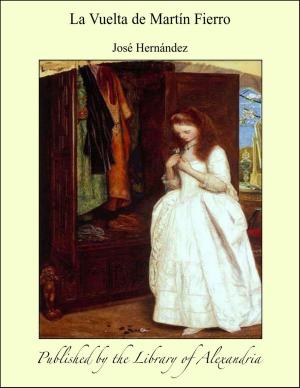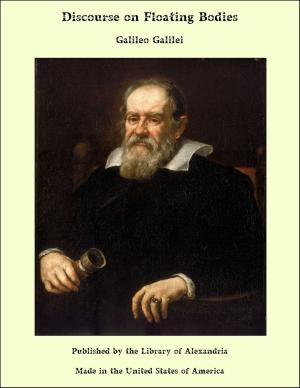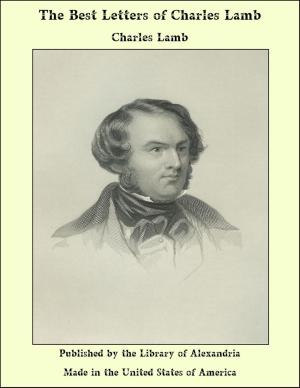| Author: | Elizabeth Garver Jordan | ISBN: | 9781465571397 |
| Publisher: | Library of Alexandria | Publication: | July 29, 2009 |
| Imprint: | Library of Alexandria | Language: | English |
| Author: | Elizabeth Garver Jordan |
| ISBN: | 9781465571397 |
| Publisher: | Library of Alexandria |
| Publication: | July 29, 2009 |
| Imprint: | Library of Alexandria |
| Language: | English |
I VARICK'S LADY O' DREAMS Varick laid down the book with which he had beguiled an hour of the night, turned off the electric light in the shaded globe that hung above his head, pulled the sheets a little nearer his chin, reversed his pillow that he might rest his cheek more gratefully on the cooler linen, stretched, yawned, and composed himself to slumber with an absolutely untroubled conscience. He was an eminently practical and almost rudely healthy young man, with an unreflecting belief in the existence of things he had seen, and considerable doubt concerning those which he had not seen. In his heart he regarded sentiment as the expression of a flabby nature in a feeble body. Once or twice he had casually redressing-case, with its array of silver toilet articles, the solid front of his chiffonnier, the carved arms of his favorite lounging-chair, even the etchings and prints on the walls. Suddenly, as he looked at these familiar objects, a light haze fell over them, giving him for an instant the impression that a gauze curtain had been dropped between them and his eyes. They slowly melted away, and in their place he saw the streets of a tiny village in some foreign country which he did not know. A moment later, in what seemed at the time a perfectly natural transition from his bed in an Adirondack club-house, he was walking up the streets of the little town, in correct tourist attire, looking in vain for a familiar landmark, and with a strange sinking of the heart. How he got there, or why he was there, was equally incomprehensible to him. It was high noon of a warm summer day, and the red roofs of the old buildings seemed to glow in the heat. Before him, at the end of the street down which he was walking, was a public square where marketing was going on in the open. It was crowded with men and women in picturesque peasant costumes he did not recognize, though he had travelled a great deal. As he drew nearer he heard them speaking, but discovered that their tongue was as unknown to him as their garb. He knew French, German, and Italian well; he had, in addition, a smattering of Spanish, and was familiar with the accents of Slavic tongues. But this babel that met his ears was something new. Taken in connection with the rest of the experience, the discovery sent a cold chill down the spinal column of Mr. Lawrence Varick. For the first time in his debonair life he was afraid, and admitted it inwardly, with a sudden whitening of the lips. "It's so infernally queer," he told himself, uneasily. "If I could remember how I got here, or if I knew anything about the place—" "Have you classified them?" asked a voice at his elbow. It was feminine, contralto, and exquisitely modulated. The words were English, but spoken with a slight foreign accent. With a leap of the heart Varick turned and looked at the speaker
I VARICK'S LADY O' DREAMS Varick laid down the book with which he had beguiled an hour of the night, turned off the electric light in the shaded globe that hung above his head, pulled the sheets a little nearer his chin, reversed his pillow that he might rest his cheek more gratefully on the cooler linen, stretched, yawned, and composed himself to slumber with an absolutely untroubled conscience. He was an eminently practical and almost rudely healthy young man, with an unreflecting belief in the existence of things he had seen, and considerable doubt concerning those which he had not seen. In his heart he regarded sentiment as the expression of a flabby nature in a feeble body. Once or twice he had casually redressing-case, with its array of silver toilet articles, the solid front of his chiffonnier, the carved arms of his favorite lounging-chair, even the etchings and prints on the walls. Suddenly, as he looked at these familiar objects, a light haze fell over them, giving him for an instant the impression that a gauze curtain had been dropped between them and his eyes. They slowly melted away, and in their place he saw the streets of a tiny village in some foreign country which he did not know. A moment later, in what seemed at the time a perfectly natural transition from his bed in an Adirondack club-house, he was walking up the streets of the little town, in correct tourist attire, looking in vain for a familiar landmark, and with a strange sinking of the heart. How he got there, or why he was there, was equally incomprehensible to him. It was high noon of a warm summer day, and the red roofs of the old buildings seemed to glow in the heat. Before him, at the end of the street down which he was walking, was a public square where marketing was going on in the open. It was crowded with men and women in picturesque peasant costumes he did not recognize, though he had travelled a great deal. As he drew nearer he heard them speaking, but discovered that their tongue was as unknown to him as their garb. He knew French, German, and Italian well; he had, in addition, a smattering of Spanish, and was familiar with the accents of Slavic tongues. But this babel that met his ears was something new. Taken in connection with the rest of the experience, the discovery sent a cold chill down the spinal column of Mr. Lawrence Varick. For the first time in his debonair life he was afraid, and admitted it inwardly, with a sudden whitening of the lips. "It's so infernally queer," he told himself, uneasily. "If I could remember how I got here, or if I knew anything about the place—" "Have you classified them?" asked a voice at his elbow. It was feminine, contralto, and exquisitely modulated. The words were English, but spoken with a slight foreign accent. With a leap of the heart Varick turned and looked at the speaker















